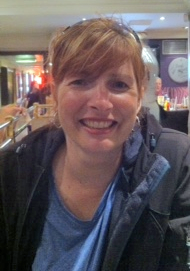Introducing Susan Garner, in her own words!
 Hello and thank you for taking the time to tell us a bit about yourself! Let’s start out with a bit about your experience and some of the issues you have encountered at your agency.
Hello and thank you for taking the time to tell us a bit about yourself! Let’s start out with a bit about your experience and some of the issues you have encountered at your agency.
“For the past twenty-two years, I have been the Finance Director of Mat-Su Services for Children and Adults [MSSCA]. I have helped MSSCA move from being a primarily grant funded agency to having over 80% of its budget come from Waiver Medicaid services. We are not the largest provider in the state, but we feel we are one of the strongest in providing person centered services. During my time at the agency, funding for Waiver Medicaid services has changed from individual consumer negotiated rates per service to flat service rates across the state. Now the state is in a budget crunch – some call it a crisis – and is looking to cut costs anywhere it can. Now is the time for provider agencies to become advocates for people who experience IDD as well as for the provider community itself.”
Absolutely. I know you’re also pretty busy at the state level, can you tell me a little bit about that?
“Last November, I became an executive board member of the Alaska Association on Developmental Disabilities, AADD. This organization represents Alaska’s developmental disabilities provider agencies and aids in advocating for individuated community based services for people who experience intellectual and/or developmental disabilities, IDD. This network comes with a wealth of experience, knowledge, and know-how. AADD prides itself on being a resource for the IDD community by living the statement ‘Someone has been there, and someone can help.’ Information sharing is a strong part of our provider agency culture.
I also chair the Chief Finance Officer Workgroup of AADD. This group was established many years ago to aid provider agencies in completing what was then the first Cost Based Waiver Medicaid Rate Survey. Since that time, this group has become a critical resource for member agencies to share information, experiences, and troubleshoot current issues. It is also a conduit to state personnel to receive information, comments, and critical feedback about issues and in turn be able to communicate state changes, issues, and challenges.”
Forgive me for assuming, but Alaska seems like a state that offers its own unique challenges when it comes to providing supports. What are a few and how have you coped with them?
The State of Alaska offers a couple of service delivery systems for people who need supports. Alaska first implemented a non-profit service delivery system with state grants and one state institution, however, currently services are also offered by for profit as well as non-profit entities – and the state’s only institution closed in October 1997. The State of Alaska does not deliver services, but administers the service delivery system.
My agency, MSSCA, offers services to people who experience Intellectual and/or Developmental Disabilities (IDD) with support through Residential Supported Living, Family Habilitation, In-Home supports, Day Habilitation, Respite, Nursing Oversight, and Supported Employment. We also support those who are at risk of a disability through an early intervention program, Infant Learning Program (ILP). In addition, MSSCA offers a developmental screenings program by mail. This program offers developmental activities and information to parents/guardians. MSSCA also offer a Car Seat Safety program through the Alaska Department of Highway Safety Office. This program offers car seats to new parents and provides monthly community car seat checks.
Finally, MSSCA has an assistance and referral service which offers short-term case management, advocacy, technical assistance, and assistance with eligibility applications and waitlist assessment forms. MSSCA primary focus is to support people who experience or are at risk of experiencing an intellectual and/or developmental disability while trying to help fill gaps in services in the community we serve, the Mat-Su Borough – which is 25,258 square miles in size (about the same square mileage as West Virginia) and has a population of 101,095!
Wow! That is such a vast area to cover! Thank you so much for your time!
Thank you!
And there you have it, if you’ve never had a friend in Alaska, well, now you do! We’ll aim to introduce a new member of our Board of Representatives in each edition of LINKs.
